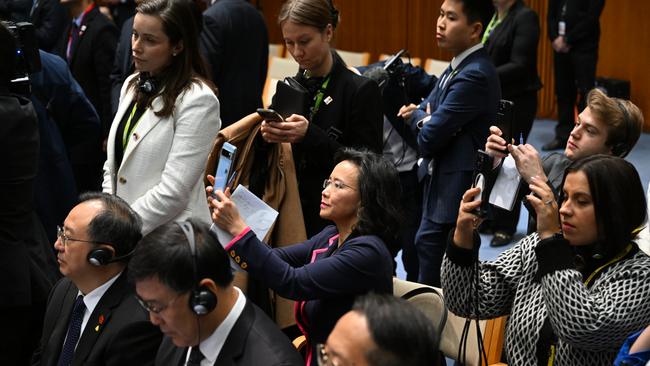
Cheng Lei is an Australian citizen and a journalist at Sky News. She formerly worked as a broadcast journalist in China. She was held in a Chinese prison for more than three years on ridiculous, trumped-up charges. Key elements of consular agreements with Australia, such as access by our diplomats, were denied in her case. She was a victim of Beijing’s brutal hostage diplomacy, by which it takes foreign citizens into punitive custody, to punish, and establish leverage over, nations it’s annoyed with.
Cheng Lei is now none of the Chinese government’s business. The extreme arrogance of the Chinese state was evident in the behaviour of Chinese officials in Canberra towards her.
In one of his meaningless statements in Canberra, the Chinese Premier talked of “an increasingly open China”. Yet right here in Australia’s own Parliament House, which is decidedly not part of Chinese sovereign territory and where officials of the Chinese state have no authority, their diplomats not only tried to block an Australian journalist, but physically checked members of staff of the Prime Minister’s Office and refused even the most elementary directions from the PMO.
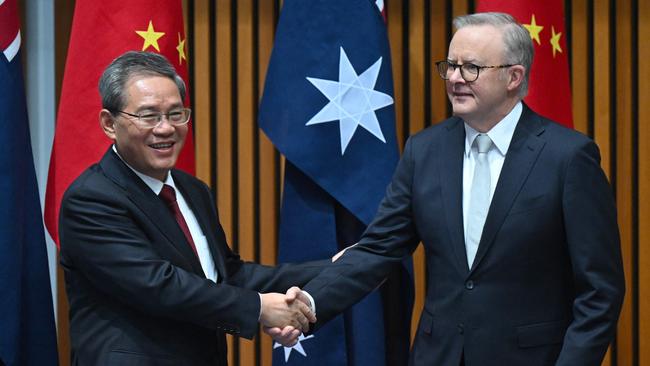
Incidentally, why is the Chinese embassy, unlike all other embassies, allowed to participate in Australian politics by organising bus loads of pro-China demonstrators whenever it wants?
The incident also provides a depressing insight into the Albanese government. When asked about the incident at the press conference at which the normally prolix Albanese performed in a very constipated fashion, the PM claimed to know nothing about it.
This allows only two interpretations. Either the Albanese government runs the most incompetent prime minister’s office in our history, or the PM was being pretty economical with the truth.
Before any press conference, a senior politician is briefed by their staff on likely questions, especially if something new and controversial is likely to come up. The Cheng Lei incident was all over the TV for hours before Albanese came to his press conference.
Having witnessed many heads of government visits at Parliament House, I know the minute-by-minute back-and-forth media management, which is intensely micromanaged by prime ministerial staff. If the PM really hadn’t been alerted to this then his government is the most comprehensively dozy outfit we’ve seen in a long, long while.
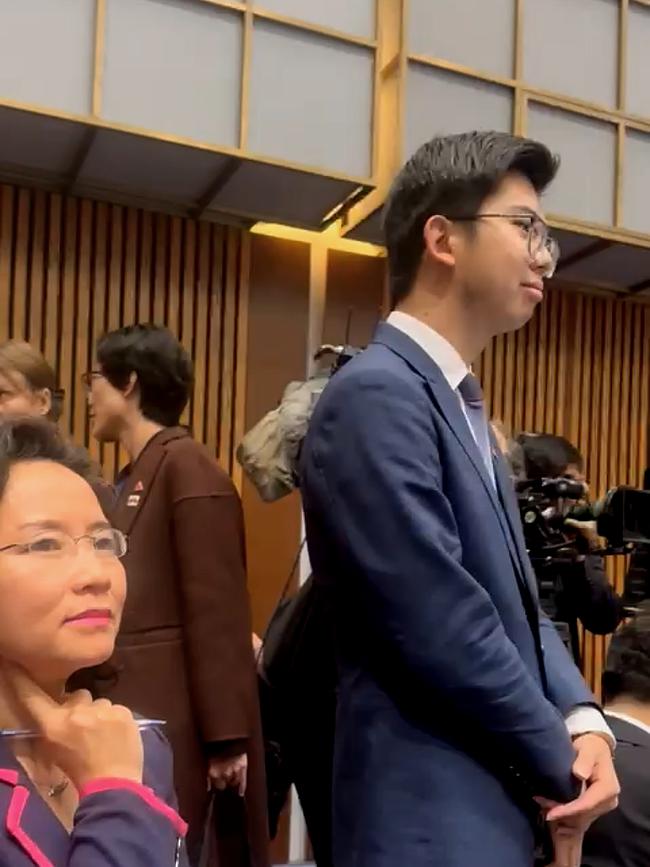
But it’s also possible the PM, or his most senior staff, decided intentionally not to know about the Cheng Lei incident. It would have been infinitely preferable for the PM to say something like: I don’t want to overblow this incident, but the junior Chinese officials involved shouldn’t have behaved that way. This is the Australian parliament and in Australia we don’t treat journalists that way.
Instead the Albanese government, and the PM in particular, seem to be constantly in fear of saying something that might upset the Chinese. It’s self-defeating and kind of pathetic. It recalls the Prime Minister’s bizarre performance at the APEC meeting at San Francisco just a few days after the Chinese navy had injured Australian divers by attacking them with sonars. To this day Albanese will not say whether he raised the matter with China’s President, Xi Jinping, in their meeting that week.
It seems almost certain he didn’t as there’s absolutely no reason not to say so if he did raise it. But the PM’s really low-class trickiness in that case was to arrange for the matter to be revealed publicly only after he had done his final press conference, though the incident had occurred several days earlier. By this schoolboy-clever stratagem, the PM avoided having to answer questions about it.
Even as crass politics this strategy didn’t work, as the PM’s shiftiness became the issue. So as well as Australian politics rightly condemning Beijing’s behaviour, it also condemned the poltroon-like performance of the PM.
Having covered a number of senior Chinese government ministers’ visits in Canberra, I know how insanely paranoid their officials are about even the slightest democratic disturbance to their preferred Stalinist serenity in public appearances. In October, 2003, the much maligned George W. Bush addressed our parliament and graciously responded to demonstrators with a shrug and a smile, and the remark: “Ain’t democracy grand.”
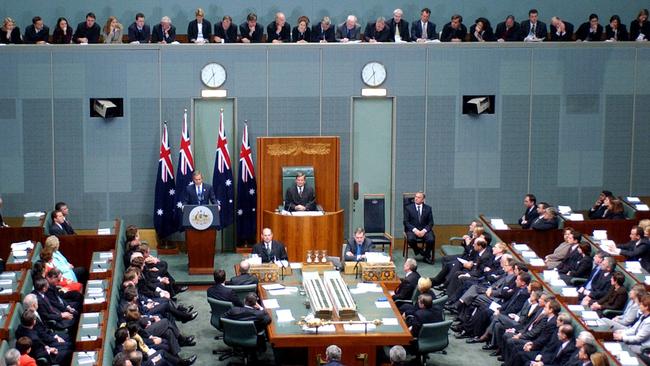
The incident drove the Chinese to distraction. Their president, Hu Jintao, was scheduled to address the parliament the next day. They were beside themselves with agitation that Hu might be subject to the same treatment as Bush, and officials threatened to cancel Hu’s address altogether if they couldn’t be guaranteed that no such indignity as suffered by Bush would be visited on their president.
It can only be, presumably, that Albanese’s concern about a possible overreaction from the Premier’s visiting party prevented him from making the obvious point that the Chinese officials involved were plainly out of line in their treatment of Cheng Lei. As a result, though, both Albanese, and Australia’s democracy, are at least slightly diminished.
Behaviour that would be unacceptable from any other nation – imagine the uproar if American diplomats tried to prevent some ABC journalist from attending a press conference with the US Secretary of State – is apparently okay from China. Of course, it’s not an analogous situation because Chinese government figures don’t do press conferences.
The Albanese government has by no means been disastrous in its handling of China. It has persisted with the AUKUS agreement, despite fierce Chinese opposition; it will call out Chinese military misbehaviour if there’s absolutely no alternative; it’s been energetic and moderately effective in the geo-strategic competition with China in the South Pacific; it has persisted with foreign investment controls on national security grounds, plus enforcement against foreign interference; it has continued to press the cases of wrongly imprisoned Australians held in China as part of Beijing’s hostage diplomacy, and so on.
Foreign Minister Penny Wong on Insiders at the weekend gave a pretty good account of some of the things Canberra disagrees with Beijing about and acknowledged that Australia is in permanent strategic competition with Beijing in the South Pacific. This sort of dialogue is an important balance to the fatuous panda diplomacy, which seems to be the primary aim of the Chinese in this visit.
Stabilising the relationship with China does not wipe away the fact that Beijing’s strategic interests, and Australia’s, are in fundamental contradiction. Albanese’s frequently cringe-worthy performances with China do not do justice to this basic reality.


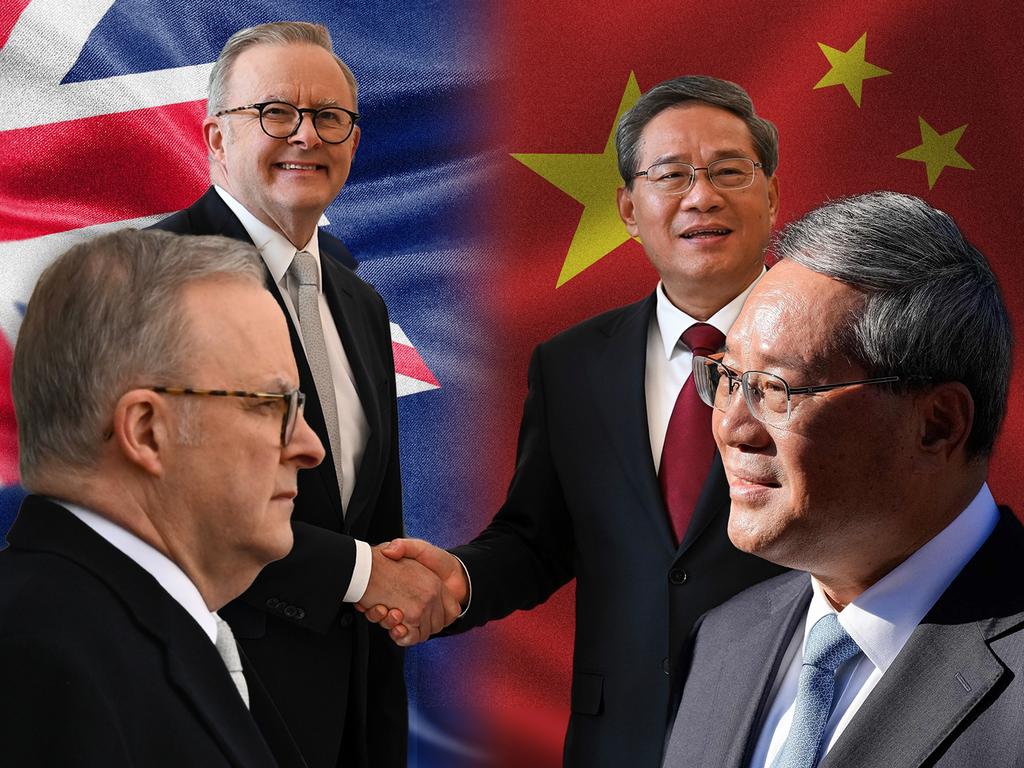

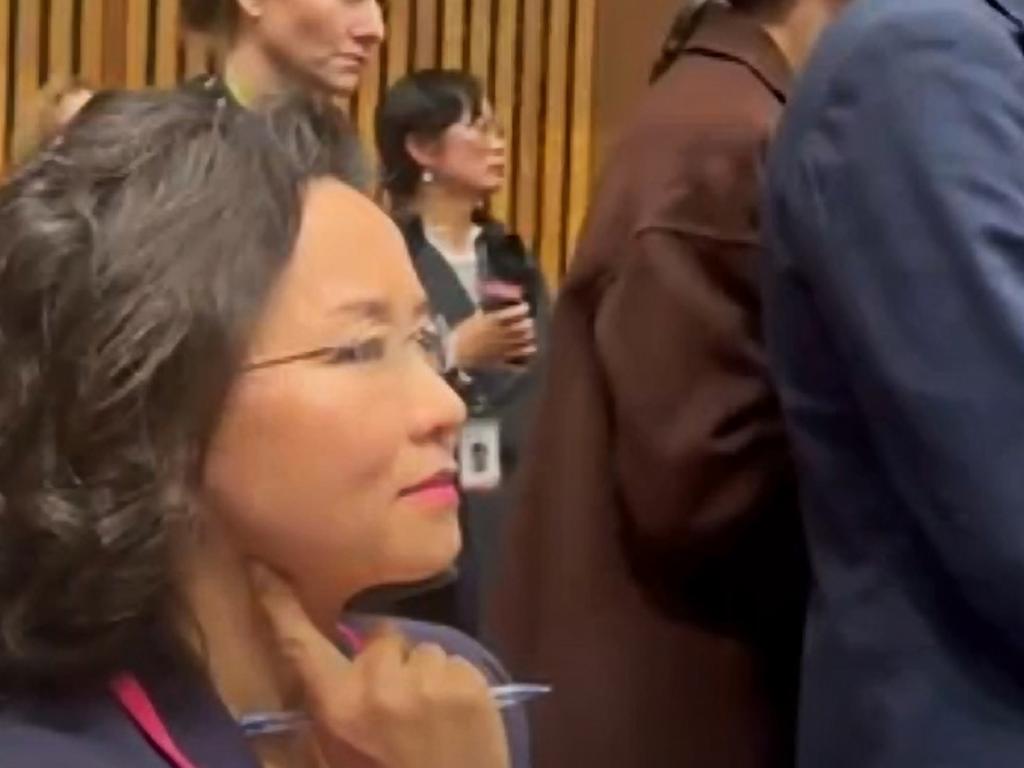


At one level it may seem a trivial enough incident, officious Chinese government personnel trying to block Australian journalist Cheng Lei from view of the Chinese Premier, Li Qiang, and Chinese TV cameras.